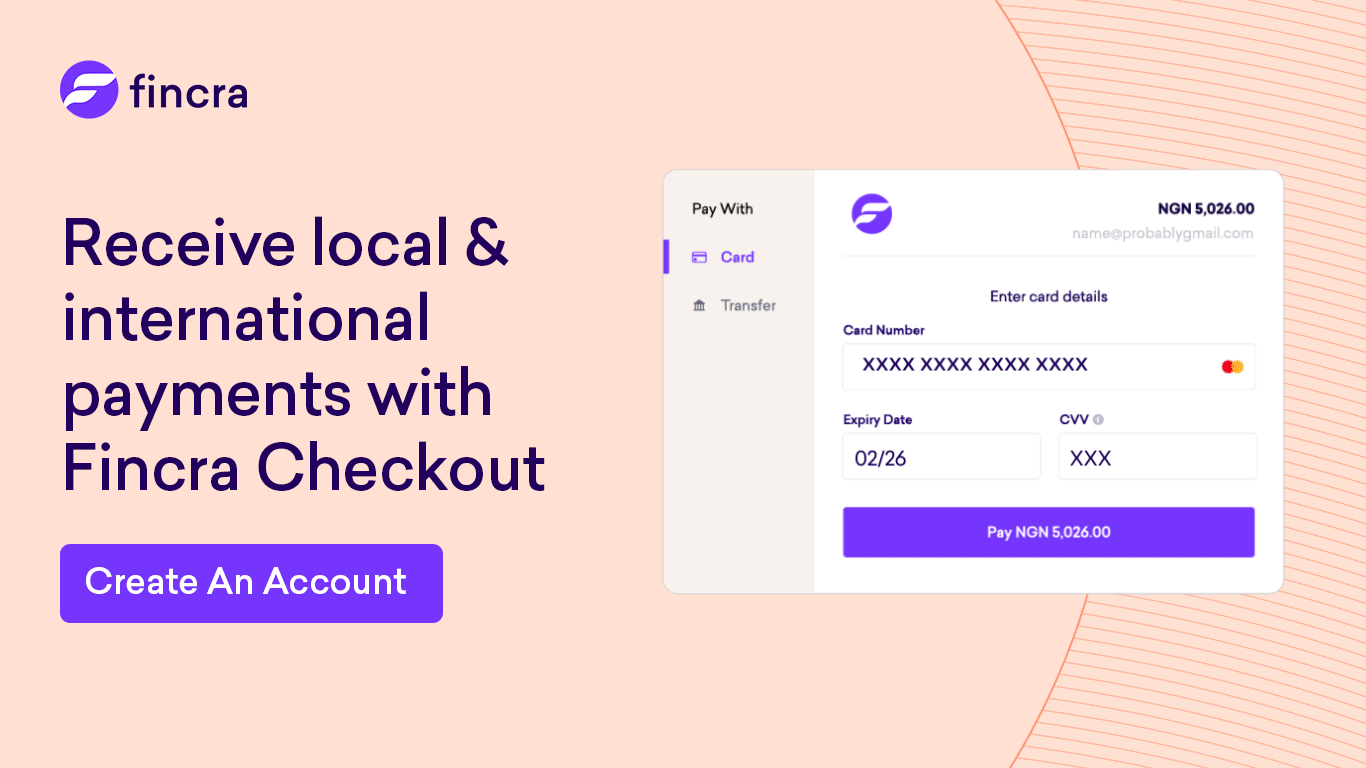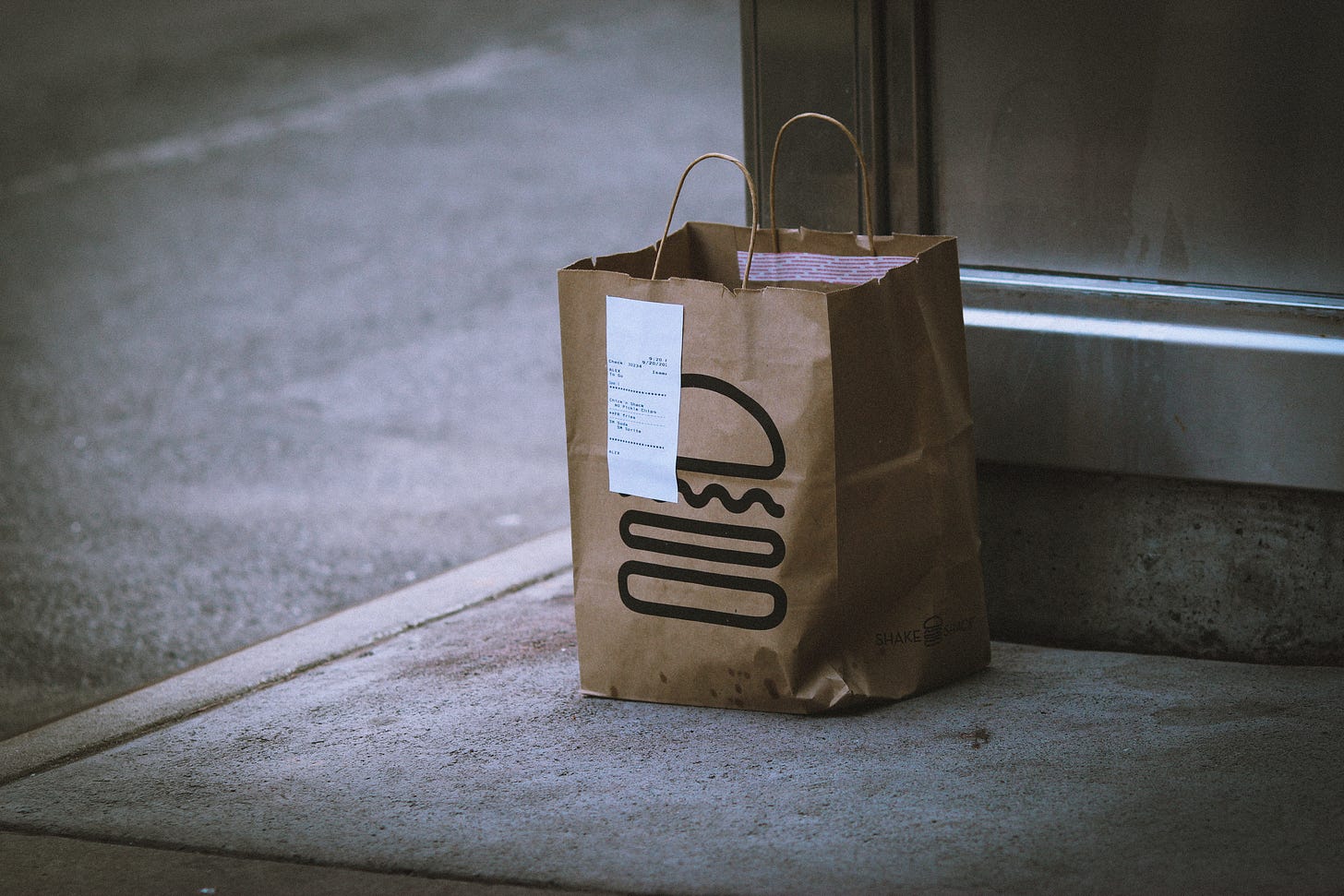Jumia and Konga are competing again
E-commerce may no longer be sexy, so food delivery is a new front
Today’s Notadeepdive is 746 words, a 4-minute read. Sign up here. Don’t forget to share the newsletter!
If you missed Friday’s newsletter, catch up here.
This newsletter is brought to you by Fincra. Fincra provides reliable payment solutions for fintechs, online platforms and global businesses.
TOGETHER WITH FINCRA
Payment collection just got easier on Fincra! Receive payments from your customers via debit/credit cards or bank transfers and settle these payments to your Fincra wallet or your bank account.). As a business, you only need to create easy-to-share payment links from the Fincra merchant portal or embed payment buttons on your online platform to gain access to Fincra Checkout; no coding is required.
Konga moves into food delivery
From around 2012 to 2016, way before fintech was the sexiest thing in Nigeria’s startup ecosystem, Konga and Jumia battled for supremacy in e-commerce. At the time, the thinking was that with Nigeria’s population, there had to be a lot of money in helping those people shop online.
The two companies spent millions of dollars to become market leader, but in time, the market fundamentals didn’t seem to support spending all that money on acquiring customers. In the end, everyone moved on from e-commerce and Jumia only stayed in the news for its Initial Public Offering (IPO), and its choppy ride on the New York Stock Exchange (NYSE).
All Jumia talks about these days is a road to profitability in a year, but because the company is publicly listed, we get to see how they’re working towards that goal every other quarter—their Q1 2022 earnings will be announced this week. Konga, by contrast, is a private company and their successes or failings since 2012 have remained largely unknown.
But here’s a timeline of what is known: Zinox acquired Konga for an undisclosed sum in February 2018, and in April of the same year, it merged with Yudala, a company already affiliated with Zinox. In 2019, a paid post claimed that Konga now had a valuation of $2 billion and had “eyes on listing on the stock market to fulfil its potential in the marketplace.”
Here’s an excerpt from the same news report: ‘‘Konga has continued to show promise in the online marketplace. After its acquisition, a review of the company’s performance shows the brand experienced over 800% growth. This surpasses expectations in e-commerce sectors across the continent. The new phase of Konga, driven by young, ambitious and innovative individuals, has seen it rake over $300m in investments, according to reports.”
Konga has seemed to court media attention this year with these sorts of big claims. Earlier this week, Nairametrics reported that the “Chairman of the Zinox Group, and billionaire, Leo Stan Ekeh, has been scooping Jumia shares indirectly suggesting a possible acquisition could be in play if the opportunity arises.”
While that is neither here nor there, one thing that we don’t have to debate is Konga’s entry into food delivery. The company will compete with Jumia Food, Glovo, Chowdeck, and Bolt Food in what everyone considers a promising market. In 2019, Nigerian households spent ₦4.6 trillion ($11.9 billion) on food consumed outside the home.
Yet, food delivery remains a difficult prospect in even bigger markets because of the marginal nature of the business. When you factor in the fact that these businesses made record revenues during the pandemic and still mostly didn’t crack a profit, you start to see what the Nigerian players are up against. That said, this is one sector to keep an eye on for the future.
Quartz media changes hands again
A few weeks ago, I shared that the media publication, Quartz was acquired by G/O media, a company that owns the publications: Deadspin, Gizmodo and Jezebel. Typically, this sort of stuff would not catch my interest, but publications like Quartz Africa and more recently, Techcrunch, have reported on the Nigerian tech ecosystem. Quartz has been especially incisive, using its data focus to tell interesting stories before most media companies caught on to the data wave.
In July 2018, Quartz was acquired by Uzabaze for $86 million, and two years later, co-founder and CEO Zach Seward, bought the publication back from Uzabaze. The biggest legacy of the Uzabaze years was a focus on growing its subscription model. Between 2018 to 2020, it reported around 17,000 paying subscribers. Early this year, it launched a paid African newsletter, charging some $60 annually.
But one apt criticism of Quartz over the years has been that it is caught in a “mushy middle.” It has not captured enough readers to be the biggest publication by reader numbers and it hasn’t become critical enough to a core and loyal group of users.
Almost like some sort of example, under its new ownership, Quartz abruptly announced that it will drop its paywall in search of a profitable model. The website lost about $6.9 million in 2021 as profits remain hard to come by in the media world.
It’s unclear what the future holds for Quartz under this new ownership but job cuts are not new to G/O. For now, it’s worth watching what this new era of ownership does for Quartz.
See you on Friday!




